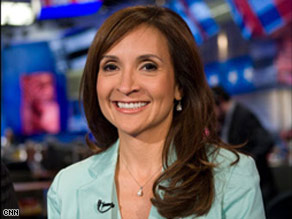
Democrats may have been the big victors on Election Day. But the Republicans still in charge in the White House and representing a possibly immovable minority in the Senate may keep the U.S. auto industry from getting the help it needs before Barack Obama is inaugurated as President in January.
To convince wary Republicans to go along with a rescue package, a House bill being crafted would give the government stock warrants, an equity stake in the automakers. It also has a provision that would put taxpayers at or near the head of the line for debt repayment when the companies recover.
Without at least $15 billion in loans, General Motors (GM), say insiders, could face bankruptcy next year. The total loan package sought by Democrats for automakers and their suppliers could be as high as $50 billion, a number floated by aides to President-elect Obama.
GM's CEO G. Richard Wagoner Jr. said Thursday, Nov. 13, in an interview with Automotive News that he is willing to accept just about any condition on the loans he has heard expressed by political leaders. "Whether that's stock warrants, restrictions on executive compensation and golden parachutes, we've said we're very willing to accept those," Wagoner said. In announcing GM's fifth straight quarterly loss last week (BusinessWeek.com, 11/7/08), Wagoner said GM may run out of cash to operate before mid-2009.
Questions for the Auto Chiefs
Chrysler CEO Robert Nardelli said Thursday that he doubted his company could survive without government loans. "It would be very difficult to make it through this unprecedented downturn" without help, he said at a conference in Palm Desert, Calif. At the same time, said Nardelli, the automaker "cannot assume we are going to get financial assistance" and may have to close two more assembly plants.
The House and Senate committees overseeing the financial-services industries have called hearings on Nov. 18-19 that will involve testimony from the CEOs of GM, Ford (F), and Chrysler, as well as other authorities from the auto industry. Last week, hearings were considered unnecessary. But there is so much mounting GOP opposition to auto industry loans that Representative Barney Frank (D-Mass.) and Senator Chris Dodd (D-Conn.), the chairmen of the House finance and Senate banking committees, respectively, changed course.
Questions for the group are expected to focus on the following:
• How did GM get to the point of near-bankruptcy?
• What kinds of guarantees can you offer Congress that your companies will be viable after a possible infusion of loans?
• How sure are you that you will be able to pay it back? How real is the threat of more than a million jobs going away if GM files for Chapter 11?
• Why are you so top-heavy in trucks and SUVs, when Toyota (TM) and Honda (HMC) are not?
• How specifically will you use the liquidity?
To GM and Chrysler:
• Will you use the money in 2009 to help achieve a merger of your two companies? If so, why is it necessary?
• Will you commit to significant restrictions on executive compensation as a condition of these loans?
'Business' 카테고리의 다른 글
| most expensive webcam? (0) | 2008.11.15 |
|---|---|
| Dell's Impressive Studio Hybrid PC (0) | 2008.11.15 |
| Ecuador to miss $30.6 million foreign debt payment (0) | 2008.11.15 |
| Lehman Brothers creditors meet in London (0) | 2008.11.15 |
| J.C. Penney 3Q profit falls by more than half (0) | 2008.11.15 |





